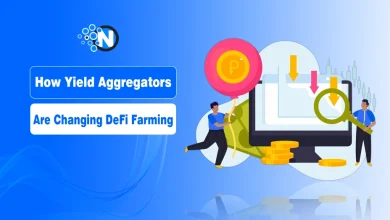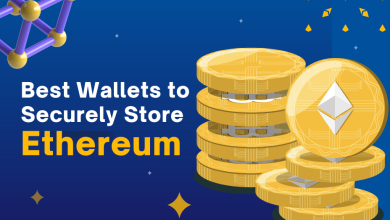Cryptocurrency Choices for Beginners in 2025

Welcome to the world of cryptocurrencies. You might wonder where to start if you are new to this exciting digital realm. It can be overwhelming to choose the right cryptocurrency for your needs, considering the many options.
The ultimate volatility in the crypto world has always been an opportunity for everyone to trade in digital assets. This article will explore some popular choices for beginners and provide you with a brief overview of each one.
Top 10 Cryptocurrency Choices for Beginners
There are hundereds of coins now in the crypto market, for you in this note I have developed a list of top 10 less volatile coins.
1. <strong>Bitcoin</strong>
Bitcoin is the pioneer of cryptocurrencies and continues to be the most renowned and extensively utilized digital currency. An unidentified individual or group operating under Satoshi Nakamoto’s alias developed it in 2009. It uses a decentralized network called blockchain, which ensures transparency, security and immutability of transactions.
- Blockchain Technology: Operates on a decentralized blockchain network, for transparency, security, and immutability of transactions.
- Limited Supply: Only 21 million bitcoins will ever exist, making it a deflationary currency. This scarcity adds to its value as a store of wealth and hedge against inflation.
- Peer-to-Peer Nature: Facilitates direct transactions without intermediaries for faster and cheaper cross-border payments.

2. <strong>Ethereum</strong>
Ethereum is a decentralized platform that allows developers to create and implement smart contracts and decentralized applications (DApps). It provides a secure and reliable environment for building and running applications without the need for a central authority or intermediary.
- Ethereum’s cryptocurrency, Ether (ETH), powers applications and incentivizes network participants.
- Ethereum enables developers to create smart contracts for executing predefined actions automatically with conditions to meet.
- This opens up a wide range of possibilities for creating innovative applications, such as decentralized finance, supply chain management and voting systems.
Overall, Ethereum offers developers a powerful and flexible platform to explore and create decentralized solutions. You can always find out about the Ethereum Price and learn more.

3. <strong>Litecoin</strong>
Charlie Lee created Litecoin in 2011, often referring to the silver as Bitcoin’s gold. Charlie Lee, a former Google engineer, as a “silver” counterpart to Bitcoin’s “gold.“ Litecoin has a fixed supply of 84 million coins and serves as a popular digital asset for payments and transfers.
- Faster Transactions: Features faster block generation times for quicker confirmations.
- Hashing Algorithm: Utilizes a different algorithm to enhance accessibility and decentralization.

4. <strong>Binance Coin</strong>
Binance Coin (BNB) is a cryptocurrency that is native to the Binance exchange, which is one of the largest and most popular cryptocurrency exchanges globally. It was created BNB to serve as the utility token for the exchange’s ecosystem.
- Ecosystem Utility: Used for trading fees, token sales, and accessing premium features within Binance.
- Wider Use: Now accepted for online transactions and investments beyond the Binance ecosystem.

5. <strong>Dogecoin</strong>
Originally created as a joke cryptocurrency in 2013, Dogecoin has surprisingly gained a substantial following and community. Despite its origins as a light-hearted and meme-inspired digital currency, Dogecoin has managed to capture the attention and support of many individuals.
- Community Engagement: Known for enthusiastic and charitable initiatives, Dogecoin’s community is one of its most notable features.
- Mainstream Recognition: Despite its origins as a joke, it has become a legitimate cryptocurrency, though with high market volatility.

6. <strong>Monero</strong>
Monero is a cryptocurrency that prioritizes privacy and anonymity. It was created in 2014 and is designed to provide secure and untraceable transactions. Monero uses advanced cryptographic techniques to prevent transactions from tracing to a specific user or address, unlike other cryptocurrencies such as Bitcoin. This makes it difficult for anyone to track or trace the flow of funds within the Monero network.
- Privacy Features: Uses ring signatures and mixing technologies to obscure sender and recipient identities.
- Untraceable Transactions: Ideal for users who value financial confidentiality.

7. <strong><strong>Cardano</strong></strong>
Cardano is a blockchain platform that aims to provide a secure and scalable infrastructure for the development of decentralized applications and smart contracts. It was founded by Charles Hoskinson, one of the co-founders of Ethereum.
- Peer-Reviewed Development: Emphasizes extensive research and scientific methodologies.
- Layered Architecture: Designed for scalability and sustainability to support long-term growth.

8. Ripple XRP
XRP is the native cryptocurrency of the network, a digital payment protocol designed for fast and low-cost international money transfers. Ripple aims to enable seamless cross-border transactions by connecting banks and financial institutions through its network.
- Bridge Currency: Connects banks and financial institutions, reducing liquidity costs.
- Global Efficiency: Aims to transform cross-border payment systems by providing seamless transactions.

9. <strong>Tether</strong>
Tether (USDT) is a type of cryptocurrency known as a stablecoin. It is designed to maintain a stable value by being pegged to the US dollar. This means that for every USDT token in circulation, the company behind Tether should hold an equivalent amount of US dollars in reserve.
- Stable Value: Each USDT token is backed by a dollar-equivalent reserve, maintaining consistency.
- Utility: Widely used for secure and stable transactions on trading and gaming platforms.

10. Solana
Solana (SOL) is best for its speed, scalability, and low transaction costs – making it a preferred choice for developers. Using a unique Proof-of-History (PoH) mechanism combined with Proof-of-Stake (PoS), Solana ensures high throughput and fast transaction processing. Its ecosystem supports a wide range of projects, including DeFi, NFT, and Web3 solutions.
- High Scalability: Processes thousands of transactions per second (TPS).
- Low Transaction Costs: Extremely low fees compared to other blockchains.

Summing Up
These are just a few of the many cryptocurrencies available in the market. Each cryptocurrency has its own unique features, use cases and potential risks. It is important to conduct thorough research and consider your investment goals and risk tolerance before diving into the world of cryptocurrencies. The cryptocurrency market is highly volatile and prices can fluctuate dramatically.
Disclaimer
The information provided in this article is for informational purposes only and should not be considered as financial or investment advice. Always do your own research and consult with a professional before making any investment decisions.




